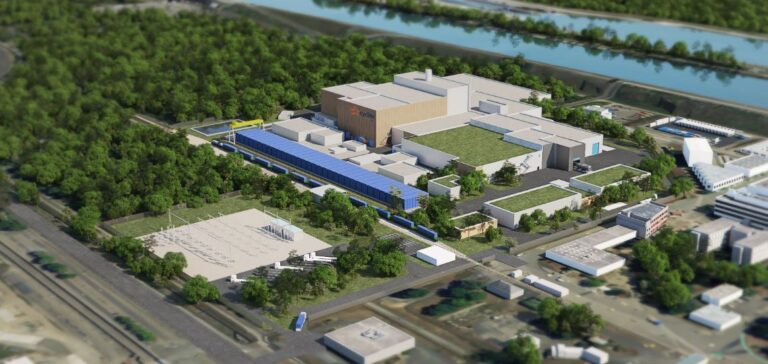The construction project of a technocenter at Fessenheim, launched by EDF on the site of the former nuclear power plant closed in 2020, has ignited significant controversy. This technocenter, aimed at recycling low-level radioactive metal waste, intends to process materials from French nuclear plants, as well as potentially from foreign sites. The public debate, organized by the Commission Nationale du Débat Public (CNDP), has been marked by strong participation, although some associations chose to withdraw due to what they consider a biased debate.
Local Support but Persistent Criticism
The project has been met with strong support from local actors. Claude Brender, the mayor of Fessenheim, firmly backs the initiative, describing it as a “future industrial project” for the region. He views the recycling of low-level radioactive metals, which includes materials from both French and international nuclear plants, as a “virtuous initiative.” The mayor highlights the potential economic benefits for the local community, estimated at 2.5 million euros annually, along with the creation of 200 permanent jobs. He also asserts that the project poses no public health risks, as the emissions are expected to be captured and treated.
Opposition Regarding Profitability and Health Risks
Despite this local support, significant opposition has emerged. Critics focus on the project’s profitability and potential health impacts. The total cost of the project is estimated at 450 million euros, a figure deemed excessive by some observers, who believe that French taxpayers will bear a significant portion of the cost. Daniel Reninger, from France Nature Environnement, points to the absence of an operational budget for the project and warns against potential financial mismanagement, citing the case of EDF’s Swedish subsidiary Cyclife, which handles similar projects but has accumulated an operating debt of 65 million euros.
On the public health front, associations like Stop Fessenheim have raised concerns about the risk that everyday objects made from low-level radioactive metals could pose over time, due to the small doses of radiation accumulated. Other concerns include seismic risks in the region, where the construction of the technocenter is planned at nine meters below the level of the Rhine Canal.
The Debate Framework and Future Prospects
The public debate surrounding the project has been largely dominated by EDF, which has been accused by some participants of having too much influence over the discussions. This situation has fueled tensions and allegations of irregularities in the management of the process. Despite these tensions, EDF has promised to publish the lessons learned from the debate in order to address concerns and provide more transparency about the risks and benefits of the project.






















